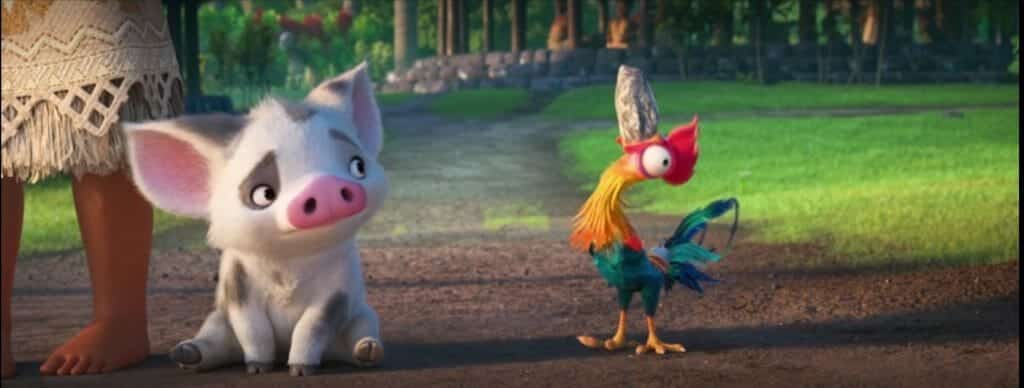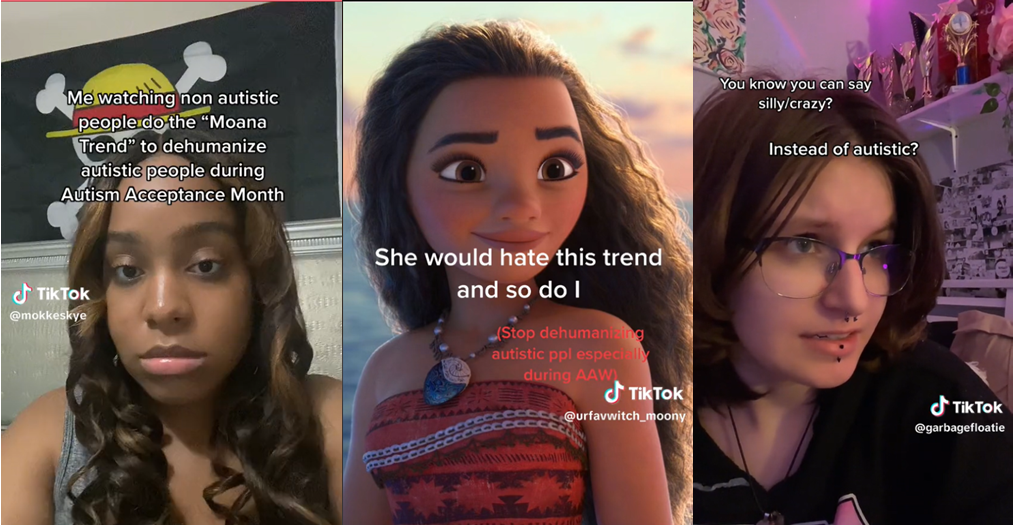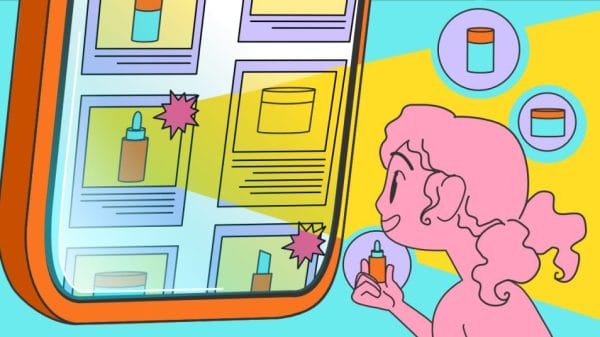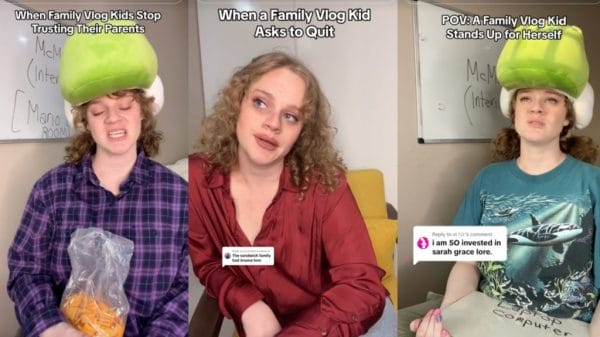Autism Awareness Month happens in April. It’s a month dedicated to learning more about autism and fighting stereotypes.
It raises awareness of the prejudice and difficulties that Autistic people face. It is during this month that an ableist and derogatory trend has begun.
This is the Moana trend.
What is the ‘Moana’ Trend?
The Moana trend is TikTok’s latest way to mock autistic people. Since forever, people have been bullied for presenting autistic traits. This trend seems to capitalize on this bullying.
The videos compare autistic people to the chicken from Moana. Users state that ‘me and Moana have something in common … she has her autistic chicken … and I have mine’. Users then proceed to include a video of their ‘autistic chicken friend’.’
Creator @wompbomb, alongside many other users, argues that allistic people have created the trend to deliberately make fun of neurodivergent people. There are very few other ways of interpreting this trend. It is hard to see how this trend is anything other than ableist bullying.
Dehumanizing Stereotypes
The trend is reliant on dehumanizing stereotypes of autistic people. By comparing autistic people to an animated animal, participators in this trend are revealing their true colors.
The comparison is obviously horrifically dehumanizing. It reveals that these people do not see neurodivergent people as people. The blatant ableism of mainstream TikToks is shocking. Ableist attitudes are ingrained and accepted by society. Otherwise, these videos would not be trending and getting millions of likes.
The comparison reduces autistic people’s experiences to something that an animal could experience. How can this be seen as anything other than infantilizing and dehumanizing? Despite claims that the trend ‘celebrates’ autistic people, the reductiveness of this trend is overwhelming.

Throughout the film, Heihei (the chicken) is the comic relief. Heihei tries to lie down on hot coals, swallows a rock, and pecks at food in the wrong place. The chicken is stupid, designed to make young children laugh. Image Credit: Moana/Disney Plus
This same idiotic chicken is representative of autism? This trend is supposedly endearing? It’s bad enough that autistic people are being compared to an animal. The fact the animal is the butt of the joke adds insult to injury.
The Moana trend shows exactly how allistic people see autistic people. Childish, stupid, and the butt of the joke. The trend shows how autistic people are treated by society and the prejudices they face.
Autism Isn’t the Same as Quirky
We’ll give some creators the benefit of the doubt. It’s possible not all of them realize how ableist they are being. The trend speaks volumes about people’s ignorance.
In fact, most of the ‘autistic chickens’ are not even neurodivergent.
‘Autistic’ has become a buzzword on TikTok recently. Whilst there are many creators who are raising incredible awareness for autism, there are also many who have decided that it is a synonym for quirky.
Autism is not a quirky personality trait. It is a disability affecting people’s lives. Calling it ‘quirky’ is reductive to autistic people’s experiences. Neurotypical people cannot appropriate autism. Society cannot pick and choose the autistic features they like, and demonize the traits they don’t.
Too often the same people who mimic the ‘quirky’ traits of autism are the same people making fun of other ways autism can present.
Autism Acceptance Month
The trend is awful any time of the year. But it started trending during Autism Awareness Month. The one month dedicated to raising awareness for the disability and combatting stereotypes. The trend undermines everything that the month is meant to achieve.
Diagnosing Autism is Difficult Enough
Stereotypes around autism are already prevalent and uninformed. This TikTok trend is only perpetuating them.
These stereotypes affect the way that autism is diagnosed. It can be hard for people whose symptoms differ from the stereotypes to get diagnosed with autism.
The perception of autism affects diagnoses. Stereotypes can prevent people from accessing the help and resources they need.
People fail to recognize the nuances and differences of autism. Being unable to access this support can lead to mental health issues.
Sexism in Autism Diagnosis
Autism can manifest itself very differently in women and AFAB people. Women often mask (present as neurotypical) leading to burnout.
Evidence that girls with autism are going undiagnosed has been increasing for years. The standard for autism has been based on how it presents itself in young autistic boys. Standard diagnostic tools, teachers, and doctors often overlook autistic girls.
Oftentimes, autistic women do not receive a diagnosis until they are much older, if at all! Women and non-binary people often have to navigate the world with no ‘tools’ for far longer than their male counterparts. Without coping mechanisms, support services, and allowances, which make life easier for autistic people, life becomes even harder.
The lack of support leads to women and AFAB people often struggling with their mental health unnecessarily.
Headcannoned Autistic Characters
In the autistic community, there are many characters who are head cannoned as autistic. A few of my favorites are Luna Lovegood from Harry Potter, Elle Woods from Legally Blonde, and Katniss Everdeen from The Hunger Games.
Surprisingly enough, none of these characters are silly animals. These characters begin to capture the diversity of autistic people. There are so many characters that are head cannoned as autistic that there is no excuse for the chicken comparison.
In honor of Autism Awareness Month let’s instead focus on the well-developed and positive representations of autism which already exist.
These are the characters that we should be sharing and celebrating as autistic. Characters who can help educate people on the variety and depth of autistic people and their experiences.














